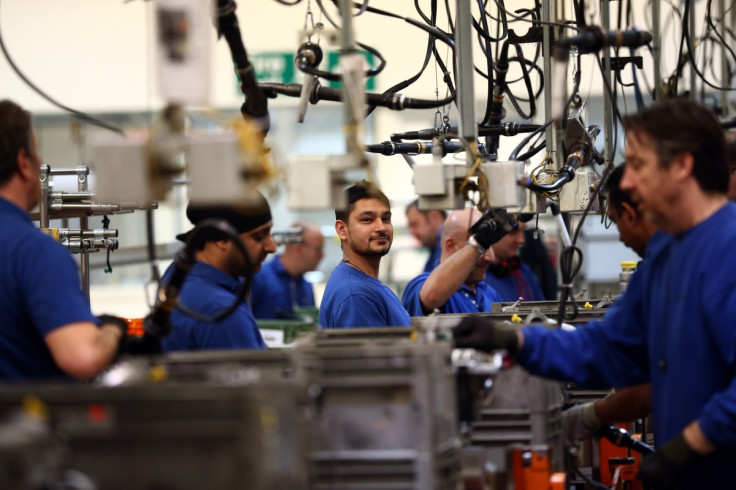The UK's productivity puzzle means Britons work an extra day to match the output of a German worker
Report from the Productivity Leadership Group claims UK economy misses out on £130bn worth of output each year.

Addressing Britain's chronically poor productivity would boost the UK's economy by £130bn a year, an industry body said on Tuesday (11 July) as it unveiled a plan aimed at helping firms become more efficient.
The Productivity Leadership Group (PLG), which is headed by Sir Charlie Mayfield, the chairman of John Lewis, said it hoped its "Be the Business" plan would provide practical tools to inspire and help British businesses to become more efficient and productive.
Britain's productivity is lagging so far that of some of their European counterparts that the average British worker has to work until Friday afternoon to produce what a German employee would produce in four days.
Workers in the US, meanwhile, would have to work an extra hour but would still produce more than the average Briton working on a Monday-Friday basis and the same applies to French workers.
Data released last week, showed the productivity of British workers fell back below pre-financial crisis levels. According to the Office for National Statistics, the hourly output per worker slipped by 0.5% in the first three months of the year compared to the final quarter of 2016, meaning workers were producing less in each hour they worked.
"The UK's productive capacity is the single most significant factor in driving economic growth and raising living standards," the group said in its report.
PLG, which was established two years ago, added two pilot schemes were already underway. Thirty-two businesses with a combined turnover of £2.7bn and 7,000 staff on their books are currently enrolled in the projects, which are carried out in partnership with Bath and Lancaster University Business Schools.
"We aim to support businesses in three principal ways," said Mayfield.
"By inspiring leaders with actionable insight that helps businesses to set goals and measure progress.
"By providing modern tools that enable businesses to work out how good they are compared to others they choose.
"By encouraging sharing of best practice within communities of businesses across the UK as a catalyst to enable people to find out what's worked best for others seeking the same improvement."
He added the debate over productivity would have to be seen from an entrepreneurial point of view, rather than from that of economists.
© Copyright IBTimes 2024. All rights reserved.






